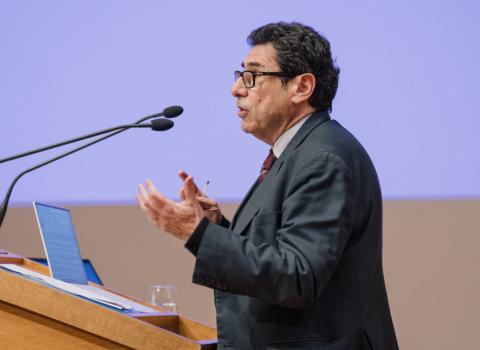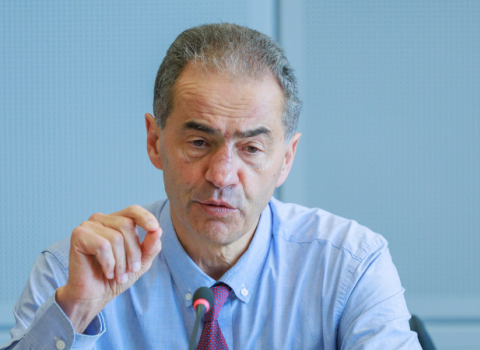
European Research Council president Fois Kafatos: "Very pleased with this powerful message of support."
The European Research Council (ERC) was inundated with around three times the number of applications for its first ever call for proposals, which closed earlier this week.
In a joint statement with the European Commission, the ERC said 9,167 proposals were submitted under the so-called Independent Investigator Grants. The ERC expects to fund between 200 and 250 projects.
"We are very pleased with this powerful message of support for the ERC and its strategy,” said Fotis Kafatos, ERC President.
Peer review panels will be responsible for the evaluation of proposals. The panel members have been selected by the Scientific Council from internationally recognised researchers across Europe and from other parts of world.
Consistent with the rules applying to the ERC, all other panel evaluators and referees will also be selected by the Scientific Council.
No delay
The Commission said that although the number of proposals exceeded expectations, it is confident the ERC will be able to process the applications without delay.
“We will be working intensively in the coming months to ensure a smooth and fair evaluation process. We will also be developing the detailed plans for the second ERC grant scheme, addressed to the very best established investigators working in or moving to Europe (ERC Advanced Grants),” said Kafatos.
"The level of interest in the ERC among researchers at the beginning of their careers is a solid vote of confidence in this new body to support frontier research in Europe. I very much hope that we will see similar levels of interest among established researchers,” said European Science and Research Commissioner Janez Potočnik.
The ERC does not identify research areas or disciplines in advance – many proposals are interdisciplinary. But as a rough guideline, around 46 per cent of the awards will go to physical sciences and engineering, 37 per cent to life science including medicine and 17 per cent will go to proposals in the social sciences and humanities fields.
Scientific quality will be the sole basis for selecting proposals for funding, regardless of nationality, the Commission said in a statement.
Two-stage procedure
The peer review panels, assisted by additional panel evaluators and referees, will evaluate proposals in two stages.
Successful applicants at the first stage, which will be completed by July 2007, will be invited to submit more detailed proposals for the second stage evaluation that will take place in autumn 2007, allowing the first awards to be made before the end of this year.
The ERC was authorised last year by the European Parliament, and endowed with a €7.5 billion bankroll to spend on science over the next seven years. In contrast to the rest of EU research funding – which tends towards big, industrial-research consortia – the ERC is focusing on basic research (“frontier research” in its own terminology).
These include the fundamentals of genomics, solid-state physics, organic chemistry, astronomy, archaeology – even art history. This isn’t about developing wind farms, software architectures or other development projects of the sort already familiar to Brussels technology-policy watchers. This is about science.





 A unique international forum for public research organisations and companies to connect their external engagement with strategic interests around their R&D system.
A unique international forum for public research organisations and companies to connect their external engagement with strategic interests around their R&D system.